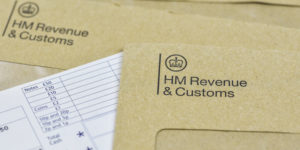A dormant company is one that has been incorporated at Companies House but is not currently carrying on any kind of business activity or receiving any form of income.
HMRC considers this type of company to be dormant (inactive) for Corporation Tax purposes. A company can be dormant from the date of its incorporation, or it can become dormant after a period of trading activity.
There are many reasons why a company may be dormant, such as:
- reserving a company name whilst preparing to launch the business
- protecting a trading name to prevent it from being registered by another business
- restructuring a previously active business
- when an owner requires an extended period of time off due to illness, maternity leave, travel, a sabbatical, or any other reason
Your company can remain dormant for any length of time, but you must tell HMRC as soon as possible and maintain a number of statutory obligations for Companies House.
This includes filing annual confirmation statements and dormant company accounts, reporting changes to your company’s details, and keeping statutory records up-to-date and available for public inspection.
Can a dormant company trade?
A dormant company cannot carry on any kind of trading activity or receive any form of income, which includes:
- buying and selling goods and services
- leasing or buying property
- employing staff
- paying directors’ salaries
- managing investments and receiving dividend payments
- issuing dividends to company shareholders
- earning interest or paying bank charges
- paying legal or accountancy fees from the business bank account
A dormant company that carries on any such activities will forfeit its dormant trading status and be required to prepare full statutory accounts.
How do I make my company dormant?
To register a new company as dormant or change the trading status of an existing company from active to dormant, you must contact HMRC’s Corporation Tax office in writing. You should state the date from which the company is dormant.
You can find these contact details on any official letter that HMRC has sent to your registered office address. Alternatively, you can find Corporation Tax office details online.
Within approximately 15 days, you should receive a notification at your registered office address confirming acceptance of this dormant status.
If your company was previously trading, HMRC will send a ‘Notice to deliver a Company Tax Return’. This must be completed for the Corporation Tax accounting period prior to the company becoming dormant. It should be delivered to HMRC online.
- File your dormant company accounts here
- Late filing penalties for limited companies
- Closing a limited company without paying tax
You will have to pay Corporation Tax on any profits made during that time. You should also close down your payroll and cancel your VAT registration, if applicable.
Before declaring your company dormant, you should ensure all outstanding bills have been paid, including directors’ salaries, employees’ wages, shareholders’ dividends, direct debits for service providers, and all accounts with suppliers. If your business is owed any money from clients, you should arrange to have these accounts settled.
Upon satisfying all the above, you should not have to contact HMRC again until your company begins trading.
Notifying Companies House
You do not have to notify Companies House when your company becomes dormant, but you will still have to file a confirmation statement (formerly known as an annual return) and dormant accounts every year.
The submission of annual accounts is the way in which Companies House is informed of a company’s dormant status.
Get your free Dormant Notification Letter Template
Dormant company bank accounts
It is advisable to avoid opening a business bank account if your company is dormant. If it was previously trading, it would be a good idea to close any existing business bank accounts to avoid bank charges or unexpected payments, both of which would forfeit your dormant status.
Any incidental payments you need to pay should be made from a personal bank account instead.
Can a company make or receive payments when dormant?
The only transactions that a dormant company can put through a business bank account are:
- payments for shares from the first shareholders
- paying fees to Companies House for filing a confirmation statement and changing the company name
- paying late filing penalties to HMRC
All other types of payments made or received are considered ‘significant accounting transactions, which would jeopardise the dormant status and require the submission of full statutory accounts.
Dormant company reporting and filing requirements for Companies House
Dormant companies are required to prepare dormant accounts and confirmation statements for Companies House every year.
The accounts consist of a balance sheet and any relevant notes. You can deliver this information to Companies House by post or online using form AA02. The deadline for filing accounts is 9 months after the end of the financial year, which is known as the ‘accounting reference date’.
However, if you are filing your company’s first accounts and they cover a period of more than 12 months, the deadline will be 21 months from the date of incorporation. Companies House will notify you of these filing dates closer to the time, but you should set up your own reminder system in any case.
The annual confirmation statement is a document that confirms key company details at a certain date, including:
- company name
- registered office address
- SAIL address (if applicable)
- directors’ details
- company secretary details (if one is appointed)
- shareholders’ details
- location of statutory company records
- information about issued shares
- nature of business activities (SIC codes)
- information about people with significant control (PSCs)
- registered email address
A company’s first confirmation statement must be delivered 12 months after the date of incorporation. Subsequent statements are due 12 months after the confirmation date of the previous statement filed at Companies House.
There is no limit to the number or frequency of statements filed each year. The purpose is simply to confirm important details to ensure the public register remains accurate and up-to-date.
Dormant companies must also ensure statutory records are kept up-to-date and made available for public inspection at the registered office or SAIL address.
Any changes to the registered details of the company must be reported to Companies House as soon as possible. The public record will be updated accordingly.
Dormant company requirements for HMRC
Companies that are dormant from the date of incorporation do not have to file any tax returns with HMRC until they become active. However, dormant companies must file a Company Tax Return if they were trading for all or part of an accounting period before becoming dormant.
After informing HMRC that your business has ceased trading, you should receive a ‘Notice to deliver a Company Tax Return’. This must be completed to cover the period of activity and to work out the amount of Corporation Tax (if any) your company owes.
Other than this tax return, the company should have no further obligations to fulfil for HMRC until it begins trading or the company is dissolved.
Does my company have to pay tax when dormant?
Dormant companies do not have to pay any tax until they become active. However, if a company was previously trading, it must pay any outstanding tax liabilities to HMRC from that period of activity.
How do I make a dormant company active?
If and when you are ready to make your dormant company active, you must contact HMRC within 3 months of carrying on any kind of business activity or receiving any form of income.
If your company has never traded before, it must be registered for Corporation Tax online. You will need to create a Government Gateway account and provide the following statutory information:
- company name
- company number
- date your company became active – this will be the start of your company’s accounting period for Corporation Tax
- address where principal business activities are carried out
- Standard Industrial Classification (SIC) code – the nature of your company’s main business activities
- accounting reference date (ARD) – the date up to which your company accounts will be prepared
HMRC will add this information to their computer records and work out your company’s accounting period for Corporation Tax. This will run from the date it begins trading, up until the accounting reference date (ARD) of your company’s annual accounts.
You will receive a letter at your registered office address with your company’s deadlines for paying Corporation Tax and filing Company Tax Returns. You must maintain accurate business and accounting records to be able to complete these tax returns and work out its tax liabilities.
You may wish to consider appointing an accountant or tax advisor to help with such matters.
If your company employs staff, you must register as an employer and set up PAYE. You may also have to register your company for VAT if its annual turnover is expected to exceed £90,000 (VAT registration threshold from 1 April 2024).
There is no need to immediately notify Companies House when your company becomes active. You will provide notification of its active trading status when the next annual accounts are filed.
Can a dormant company be a shareholder or guarantor of another limited company?
A dormant company can be set up as limited by shares or limited by guarantee for the sole purpose of acting as a shareholder guarantor of another company. By doing so, the dormant company agrees to contribute a sum of money toward the other company’s debts in the event of insolvency.
To maintain its dormant status, a corporate shareholder or guarantor must not have any ‘significant accounting transactions’ going through its accounts at any time.
If you set up a dormant company to simply act as a shareholder or guarantor of another company, there shouldn’t be any need for you to put any transactions through the accounts. For example:
- If you register a dormant company limited by shares, the value of the shares can be set to match the amount you have guaranteed to contribute toward the other company’s debts
- If you register a dormant company limited by guarantee, the pre-determined sum of the guarantee can be set to match the amount you guarantee to contribute toward the other company’s debts
The payment of shares and guarantees will not be classed as a significant accounting transaction because these fixed sums of capital are in place when the company is incorporated.
If the dormant company receives any kind of payment for its role as a corporate shareholder guarantor, or if the directors or members of the company receive any income, the company will no longer be considered dormant.
Please note that the information provided in this article is for general informational purposes only and does not constitute legal, tax, or professional advice. While our aim is that the content is accurate and up to date, it should not be relied upon as a substitute for tailored advice from qualified professionals. We strongly recommend that you seek independent legal and tax advice specific to your circumstances before acting on any information contained in this article. We accept no responsibility or liability for any loss or damage that may result from your reliance on the information provided in this article. Use of the information contained in this article is entirely at your own risk.








Join The Discussion
Comments (2)
I’m struggling to find guidance on the following question, I’d be grateful for any advice. If dormant companies begin trading again, specifically holiday ownership companies, can they demand maintenance fees from members for the period during which they were dormant?
Thank you for your kind enquiry, Laura.
We are not certain that just because a company has been dormant (whether for Companies House’s or HMRC’s purposes), its ability to request payments from members for a period in which it is, in practical terms, dormant. This is likely something that is dictated by the company’s articles of association. We would also of course also suggest seeking specialist tax advice.
We are sorry we cannot be of more help in this instance.
Kind regards,
The 1st Formations Team